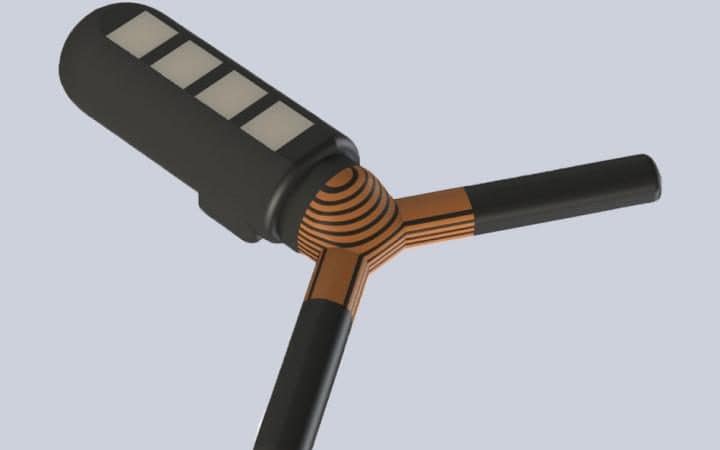Scientists create 'digital pill' that can be controlled wirelessly in the body to deliver drugs

A "digital pill" that can be ingested and controlled wirelessly via a smartphone app to deliver drugs has been designed by scientists in an effort to reduce surgical procedures.
The device could be used to provide drugs to users for various diseases that require long-term medication, according to its developers.
The capsule could also detect infections or an allergic reaction, which would then allow a secondary feature to release antibiotics or antihistamines from the pill in response, its creators claim.
The pill is controlled externally using Bluetooth and is assembled using 3D-printing techniques, a manufacturing process where material is precisely layered on top of each other.
It dissolves when eaten, allowing its arms to expand and lodge themselves in the stomach. It eventually breaks down and leaves the body after 36 days of being inside.
Researchers from the Massachusetts Institute of Technology revealed the device in a paper published in the Advanced Materials Technologies journal this week.
"Our system could provide closed-loop monitoring and treatment, whereby a signal can help guide the delivery of a drug or tuning the dose of a drug," said Professor Giovanni Traverso, co-author of the research.
While they did not test the pill in humans during the study, they used a tank that replicated the environment of the stomach. The researchers claim however that humans will be able to test it within two years.
Lead author of the paper, Professor Yong Lin Kong, said the limited connection range serves as a desirable security enhancement.
"The self-isolation of wireless signal strength within the user's physical space could shield the device from unwanted connections, providing a physical isolation for additional security and privacy protection," he explained.

